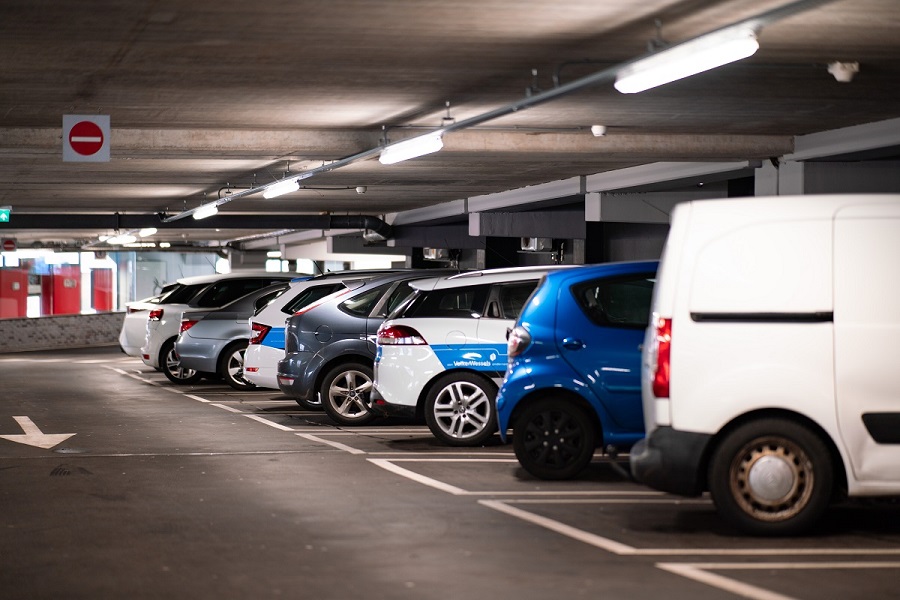For many fleet drivers, it is a daily challenge: the search for a parking space. This not only often consumes a significant amount of time and can be frustrating, but it also translates into costs for the fleet. The solution comes in the form of a system called Smart Parking. In this blog post, we will delve into what exactly lies behind this term and the advantages it offers for the fleet.
What is meant by Smart Parking, and how does it work?
Benefits of Smart Parking for the Fleet
In German cities, drivers spend approximately 41 hours per year searching for parking spaces. This not only consumes time, money, and patience but also has adverse environmental effects. During the search for parking, harmful emissions are generated, contributing to increased air pollution. Smart Parking offers a solution by providing intelligent parking space management, promising a multitude of economic and ecological benefits.
Firstly, it reduces the time spent searching for parking, which accounts for about 30% of urban traffic congestionopen_in_new . A Smart Parking solution reduces stress for fleet drivers and increases productivity. Instead of searching for parking, time can be allocated to other activities.
Another positive effect is the reduction in fuel consumption, resulting in cost savings for the fleet. Simultaneously, the environmental impact is reduced due to lower exhaust emissions. According to calculations by the National Platform Future of Mobility advisory board, intelligent parking management could save between 0.4 to 0.9 million tons of CO2 annually by 2030 compared to 2015open_in_new . Additionally, smart parking systems contribute to minimizing accidents, traffic jams, and relieving city centers.
Even company-owned parking spaces can be efficiently managed using Smart Parking solutions to optimize space utilization. Instead of assigning spaces to specific employees, allocation is flexible and based on demand.

Smart Parking in Practice
Businesses worldwide are increasingly adopting Smart Parking solutions and experiencing significant successes. One example is Uber, which utilizes sensors in San Francisco to provide real-time parking information to drivers. This innovation has led to reduced wait times, improved driver efficiency, and increased customer satisfaction.
Another company benefiting from IoT solutions is UPS. The implementation of an IoT-based parking space tracking system has optimized delivery times and lowered operational costs.
Future Outlook and Development Trends for Fleet Management
Key Points on Smart Parking at a Glance
In Smart Parking, cameras and sensors are used to monitor parking spaces and provide real-time information about available parking spots.
Intelligent parking management reduces the time spent by fleet drivers searching for parking spaces while simultaneously minimizing fuel consumption, thereby lowering fleet costs.
The integration of AI and machine learning enables accurate parking predictions and individual driver preferences. Intelligent traffic management systems guide drivers in real-time to optimal parking spaces.
Additional Fleet Management Knowledge
If you enjoyed this post and would like to learn more about this topic, we recommend these articles.

Electric Car vs. Combustion Engine: Which Performs Better?



